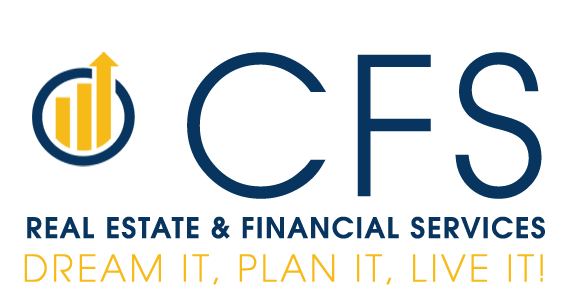Writing a business plan is a very important factor, especially for any individual who wants to venture into the financial advisory business. It acts as a guideline, which helps to define your objectives, tactics, and actions to follow to build and develop your practice. A good business plan is not only beneficial in terms of providing direction and order to your business, but it also helps in making it appear more professional to potential clients and investors. This means that your business plan should be complete and it should contain all the information that you can provide on the business including its market analysis and its potential financial performances. It should also be able to accommodate changes in the market or changes that may happen in the business environment. When you devote your time and energy to developing a comprehensive business plan, you place your business on the right track and lay the foundation for its advancement.
Executive Summary
Financial Advisor Business Plan. The executive summary is a part of the business plan that is aimed at giving brief information about the plan. It should contain the key facts about your business such as your mission statement, target customer base, services to be provided, and the financial plan. This section is important because it offers readers a brief idea of what the business is all about and the likelihood of its success. In this section, briefly state what makes your business unique from others. Stress on what your business offers and what needs the consumers will have to meet. The conclusion of the summary should be persuasive, making the readers want to read more of the plan you have developed.
Market Analysis
Market analysis section: In this section, you will focus on the financial advisory industry. This entails looking at the market and the trends that are present, as well as understanding your target consumers and your competitors. In this way, one can be more effective in providing services that are relevant to the clients and market needs, and be more competitive.
Ready to take the next step in your financial advisory career? Our comprehensive business plan guide will set you on the path to success. Begin planning your future now with CFS Real Estate & Financial Services!
Industry Overview
It is imperative to understand the current trends of the financial advisory industry as well as its future projections. Explain how the current economic situations, any changes in regulations, and technological trends are affecting the industry.
Target Market
Concisely, define your target market by outlining the characteristics of your target clients based on their age, gender, income, education level, and other factors. It could range from age, income level, occupation, financial needs, and wants, or any other factor that may be deemed necessary. Understanding your target market enables you to deliver your services and products in a manner that meets the needs of your target clients.
Competitive Analysis
List down your key competitors and review their advantages and disadvantages. Explain how you are going to ensure that your services are unique to stand out from other similar services. This can be in terms of services offered, prices charged, or the kind of experience that clients are subjected to.
Services Offered
Explain the services that you will provide in your financial advisory business. They may include matters to do with finance, investment, retirement, taxation, estate, and the like. Describe the advantages of each service to your clients, as well as the ways to implement them.
Your services should be extensive to cover all the aspects of your client’s needs about the services you are offering. One should consider providing packages or options to allow the clients to have more choices and increase the company’s appeal.
Stand out in the financial advisory industry with a tailored market analysis and competitive edge. Discover how with our expert strategies and insights. Elevate your business today!
Marketing and Sales Strategy
Clearly state your marketing and sales plan about how you are going to acquire and maintain clients. This section should highlight your branding strategy, the marketing channels you intend to use, the sales process, and the strategies you will use to retain your clients.
Branding Strategy
Explain how you will go about establishing and nurturing your brand. This includes your business name, logo, website, social media presence, and other branding tools that you have. It is important to have a strong brand because it will help in gaining credibility and thus getting clients.
Marketing Channels
The following is the list of the marketing channels that will be used to get to the target audience. This could be online marketing (search engine optimization, pay-per-click, social media, etc. ), offline marketing (newspaper and magazine adverts, flyers, etc. ), and word of mouth (business fairs, recommendations, etc. ). This makes it possible to reach out to a larger number of people since you are targeting them through different methods.
Efficient operations are key to a thriving financial advisory practice. Learn how to streamline your processes and leverage the best technology with CFS Real Estate & Financial Services. Optimize now!
Sales Process
Describe how you make a sale and the steps that are involved; from the time you get in touch with the customer to the time he/she agrees to buy your product. This includes how you will filter out the potential clients, how you will approach the prospects, and how you will respond to their concerns. The effectiveness of the sales process is also important for the acquisition and satisfaction of clients.
Client Retention
Explain how you would ensure that clients stick with you and how you would foster a long-term working relationship. This may involve communication, customized services, and cardholder incentives. Customer retention is crucial for business sustainability since it helps clients to keep coming back.
Operations Plan
The operations plan outlines the daily tasks that are necessary to sustain and manage your financial advisory business. This involves the location of your business, the technology you intend to use, the employees you plan to hire, and the business processes you will implement.
Business Location
Explain where your business is situated, whether it is your house, a rented office, or a commercial space. Explain how the location will be conducive to your business activities and customers’ appointments.
Achieve financial stability and growth with a detailed financial plan. From startup costs to revenue projections, we have you covered. Start planning for a prosperous future with CFS Real Estate & Financial Services!
Technology Infrastructure
What technology tools and systems will you use to manage your business? This could range from financial planning software, customer relationship management systems, and communication tools. Technology investment is critical in improving efficiency and managing clients’ expectations.
Staffing Plan
If you intend to employ people in your organization, elaborate on the staffing plan. This includes the positions that you will need to recruit for, the competencies that are needed in your company, and the time frame you have in mind for the recruitment process. Staffing is an important process that guarantees that a business has the right team in place.
Workflow Processes
Describe how your agency or organization provides services to clients. This entails outlining the procedures you will follow when acquiring clients, handling their accounts, and offering consistent services. Organizational efficiency and client satisfaction can thus be enhanced by effective workflow.
Financial Plan
In the financial plan section, you include specific financial estimates of your business. These are the costs that you will incur when starting your business, expected revenue from your business, income, and expenditure account, balance sheet of cash, and the point at which you will start making a profit.
Startup Costs
What are the expenses you are likely to make when starting your financial advisory business? This might involve the purchase of office space, equipment, marketing expenses, and the first few months of working capital.
Startup costs are important to organize your finances.
Revenue Projections
It is important to give some estimates of the revenues that you expect to generate in the initial years of your business. This requires your projected number of clients, average fee per client, and total income. Budgeting is important in projecting and planning the necessary financial goals for an organization.
Retain clients and build lasting relationships with our effective client retention strategies. Ensure your business thrives with happy, loyal clients. Implement these strategies with CFS Real Estate & Financial Services!
Profit and Loss Statement
Prepare a profit and loss account and indicate your anticipated sources of income and expenditure. This includes your anticipated sales, cost of sales, selling expenses, and net income. A clear profit and loss statement is useful to determine the performance of the company in terms of its financial health.
Cash Flow Statement
Prepare a cash flow statement to demonstrate how cash will be coming in and going out of your business. This encompasses the amount of money that is received from your clients in the form of fees and the amount of money that is paid out in the form of expenses. It is important to note that cash flow management is very important in ensuring that the business is always liquid.
Break-Even Analysis
Break-even analysis to find out how many units need to be sold to make up for the fixed cost. This involves evaluating your fixed and variable costs as well as finding out your break-even point. Knowing your break-even point is useful in setting financial goals and objectives.
Conclusion
Conclude your business plan and remind the readers of your objectives and action plan towards achieving those objectives. Stress on how planning and control are the key to attaining the goals and objectives of a business. The conclusion of the business plan also needs to be powerful to restate the main points of the plan and make the reader believe in you.

